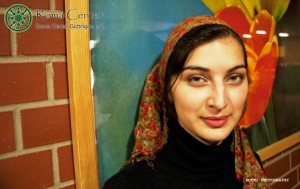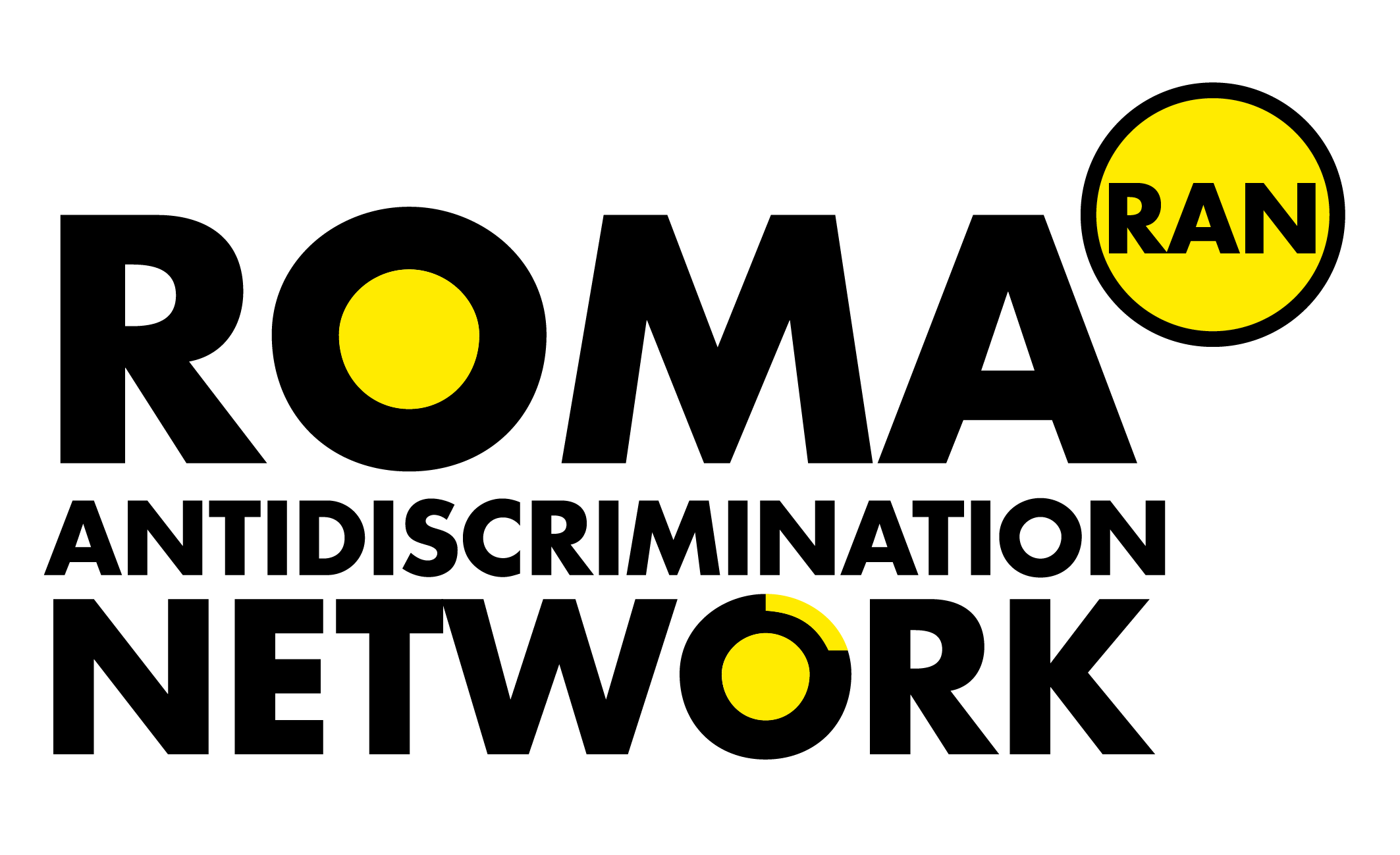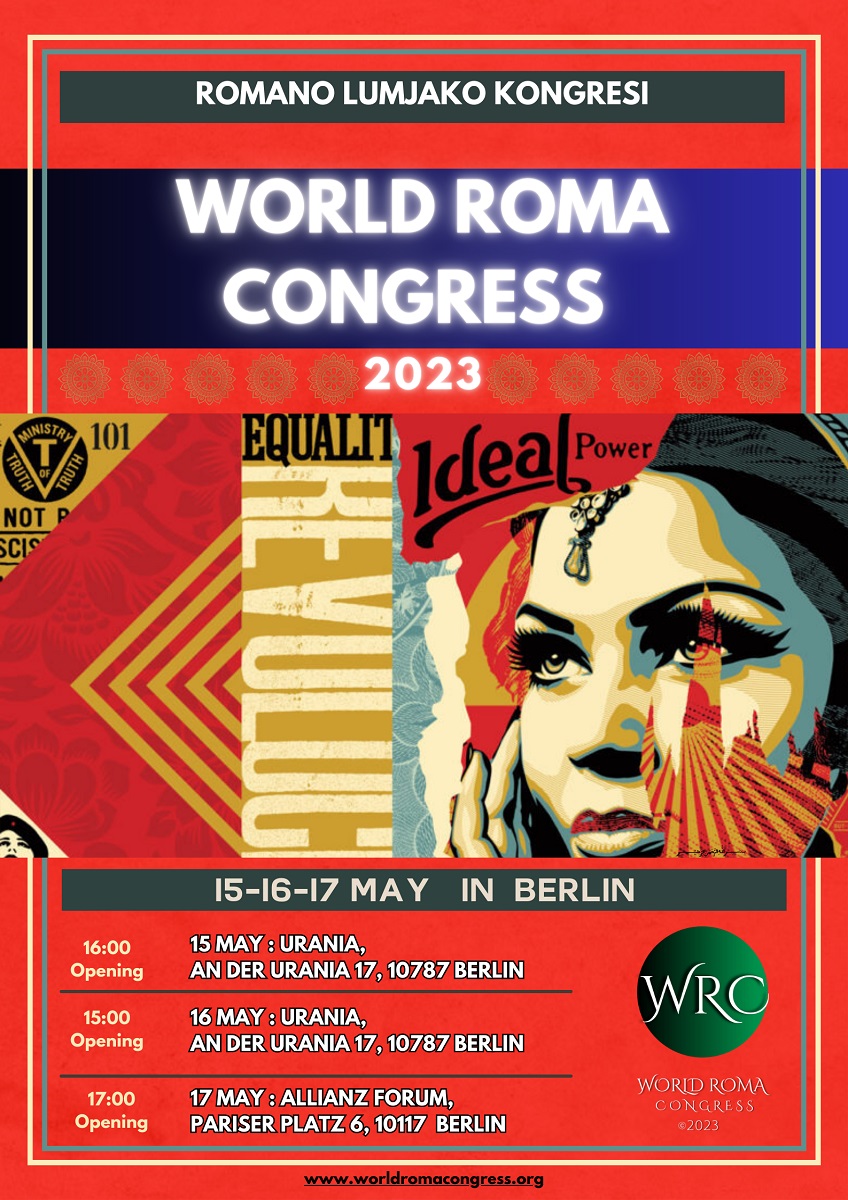Sar simas me po seminaro ando Hannover, Germania
Alunica Lepadatu
English
Le rom pi sia i lumia sili ekh bari familija. Savore sam phral haj pheja. Savorendi ekh rat Kana suferil ekh – dukhalame savoren. Ita star le romendi anda sia le tseri (countries) le problemi sa gudula sili.
Dui ges parpale me irisajlem pau seminaru “Remember the past – shaping the future” kaj kidjavlis o Roma Center Gottingen e.V.. Othe maladilem tarne romentsa anda 5 tseri: Germania, Ispania, Romania, Serbia haj Ukraina. Me korkuru sim andai Republica Moldova. Falma mishto ki di gadaja data amentsa sikionas, beshenas ekha miseljati haj jianas punro pinrestar o tarnimos rakhlikano, ki i integratsia le romengi bi li gajengu ni kerelpi.
Amia sikiljam i istoria le romenghi, katar amea ajleam, anda so grupa si amari cib haj sarta pastrosajle amare traditsij gadikita bersha.
Tali i tema maj bari sas o trajo le romengo pi vremea le Marimaski (II World War). Amia andikhthan incercosardiam ti aflis (tried to understand) sar sia inceposajleau, i pricina star mudarenas le romen, star shjordeapi gadikita rat phabardo? Sporisas (were arguing) sar maj ciaces buciol guduja so nakhline amare phure: konta phenel’leski “o Holocausto romano”, ta le evreja phenen ki gadava’s lengo alau. Aver kon mothon “o Porajmos”, ta le rom lagian gadale alaestar haj steruinpi (try to) ti bistren les. Maj ashunelpi “Samudaripen” sau “o Genocido romano”. Ji ando ges di ages gadaua proceso najles ekh anau, anda guduja ki hantsi delaspi duma anda lesti.
Andakh gaoro pashau Hannover amea beshliam efta ges. Dashtiu ti phenau ki nici’kh minuta ni nakhljau shiushi (empty). Sia so kerasas amia – kerasas andal amare rom.
Pi’kh ges inklistjam ando foru haj kerdiam ekh aktsia: sas amen muzica, but informatsia delaspi duma, teatru romano socialno kheldiam…
Di pau Marimos o Baro nakhline but bersh, but bukia skimbosajli (has changed) . But, ta na sia! Falma zurales nasul ki inki maj si i discriminatsia, i xenofobia, i deportatsia le romenghi, amare romen denli le pinresa sar le giuklen, amare manoshendar daran, ciudinpi lendar… Le rom sili nevoime ti phiraen bukja porane pi pesti, ti han so diau o Del, ti soen avri pi phuv shudri ki sili ciore… gadaia sia isi ages mashkar amendi! Amia marasami ti skimbos gadaja haj keras sia so si anda amari zor… Anda amaro teatru sochialno amia kamliam te phenas STOP discriminatsia haj deportatsia! Ki amia sa sam manosh sar saore, amia sa rovas kana dukhal’ami, sa asas kana amengi mishto… Anda gudua ges le nemtsi haj sia kolaver manosh paj ulitsa (from the street) ashunenas’ami, pashonas amendi, denas duma, pushenas’ami so interesol’li, on khiar khelenas amentsa sarsi kana bisterdiljau o pharimos kaj sas. Amia khelasas andikh than, marasas le pinre palai muzica pi guduia phuv kaj ando bersh 1939 marenas’ami on amen.
Aver ges amari grupa aflisajliau (came to) ando Bergen-Belsen (konchentratsiono lagheriu). Othe dikhlem le fotografij, le documentea, le bukjora le romenge haj le evreenge mudarde. Gadaua sas o than kaj nikerenas haj kinuinas (turtured) amare phuren. Kathe rughinaspe le deja pala peske ciaore, kathe shukjonas bokhatar haj trushatar, kathe nakhenas le vets (lives) le manoshengi. Ando Bergen-Belsen phari i atmosfera, makar ki (even if) sia dino jag saekh ni dashtis ti rasuflis (to breath) gudule aerosa. Ages gadaua’s muzeu. Anda lesti den shela manosh fisao ges ti anen’peski amintea (to remember) andal kokola kaj naj, ti astaren pokh momeli…
Amia ni giangliam kaj gias. Po drom kau Bergen-Belsen ashunasas muzica, asasas, shuguisas (to make jokes). Ta kana irisas’ami parpale ando hotelu – khonik ni delas duma sia o drom. Amia inceposardiam (began) ti ghindis aver felu…amia but so hakiardiam.
Palau Bergen-Belsen maladiljam ekhe phoromesa (sinti). Les silis vo 84 bers. Lesko anau si Franz Rosenbach – o nakhadiau o Marimos o Baro haj trail ji ando ges di ages. Del’les o Del but bersh angle! Lestar amia ashundiam i istoria ciaci sar trainas le rom ando lageru. Bari zor trebul ti ael ekhe ciaores di 15 bersh kaj ti nakhel o iadu pi phuv. Gadalendar manosh hantsi acile. Lendar trebul ti sikios so maj but. Nais leske ki ajliau amende haj nais le Devleske ki ages o ingarel o trajo mishto.
Sae gudula rom kaj ni khelen haj ni gilaban? Naj gadalendar. Fisao silis vo’kh talento. Amia o tarnomos romano haj o tarnimos rakhlikano kaj sas amentsa sikadiam so dashtis. Gadia amia nakhavasas i vremea libero (free time) haj lasas amenge zor palau ges pharo.
Nais le manoshenge andau Roma Center Gottingen e.V. kaj kidine amen saoren po godova than haj dinemi gogi te hakiaras le pharimata amare niamoske. Aen bahtale, romale! Dikhas amen angle.
Alunica Lepadatu, Republica Moldova
What I have done during a workshop in Hanover, Germany
Romas all over the world are one big family. Everybody are sisters and brothers with the same blood. If one suffers, everybody feels pain. Thant’s why roma people from different countries have the same problems.
Two days ago I arrived from the seminar “Remember the past – shaping the future”, which was organized by Roma Center Gottingen e.V. There we met roma youth from five countries: Germany, Spain, Romania, Serbia and Ukraine. Me and my group – we are from Moldova Republic. I was very glad that with roma problems are interested non-roma youth who attended this seminar with us. I think that roma integration is impossible without non-roma population.
At that meeting we had study our history: where romas came from, which group is our language, and how could our traditions remain so steadily till nowadays. But the very first subject was – roma situation in II World War. We tried to find out how everything began, the reasons of roma Genocide, why flowed so much hot blood? We were arguing how to call this process of roma killing: we can say “Roma Holocaust”, but jews says that it’s not allowed for us because the word Holocaust refers only to Jewish history. There is another word from romanes “Porajmos”, but for our grandfathers it’s a big shame and they prefer to forget this expression. There are some other items like “Samudaripen” or “Roma Genocide”. Until today there is no one and only expression for thet horrible process, because not enough attention was paid to this question.
In a small village next to Hannover we spent seven days. And I can say that every trainers’ word was important and useful for us. We did all that for roma people. One day in the city we realized an social action: with roma music, speeches about roma situation in our countries and theatre scenes with ethnic topic.
Time left, many things changes, but something still remained in our society: discrimination, xenophobia, deportations, repatriations, … One of the most important roma problems is poverty. I’m so sad about romas who have to sleep on cold and dry ground and to eat what God sent. With our social theatre we wanted to say STOP discrimination and deportation. We are simple human beings like everyone else. We cry when we feel hurt and smile when we are happy… In that day Germans were listening us carefully, they even were dancing with us, like all sorrows was forgotten. We were dancing together on that soil, where in 1939 our grandparents were killed.
In the other day we went at Bergen-Belsen. There we saw a lot of pictures, documents and different things of roma people and jews who were killed in this concentration camp. So that was the place where our old people was suffering, starving, where mothers were praying for their children, the place of lost lives. The atmosphere in Bergen-Belsen is very gravely. Even if now everything is burned it is still hard to breath in that air. Now it’s a museum and a documentary centre. Every day hundreds come in to this place to light a candle and to remember those who gone.
We didn’t know where we go. On the way to concentration camp our people in the bus was listening music, joking and sharing funny stories. But when we already were returning – no one said a word during the way back. We started to think different and to understand a lot of things after visiting Bergen-Belsen.
After this concentration camp we met an old sinti man – Franz Rosenbach, he was one the II WW roma survivors. He’s about 85 years old and he witnessed the Samudaripen with his own eyes. Well he told us the real story in details. It must be a very strong and lucky 15 years boy, who passed the hell on the earth. We must learn from him all what we can. I want to thank him for coming and sharing his experience.
Do you know a roma who can’t sing or dance? There are no romas like that. Everyone is talented. All of us – roma and non-roma youth showed what we can and how we can. In this way we were empowering our spirits after a difficult day.
And we – Moldavian delegation want to thank Roma Center Gottingen e.V. for organizing this meeting which helped us to understand the sorrows of our nation.
Ti aen bahtale romale!
Hope to seeing soon,
Alunica Lepadatu


